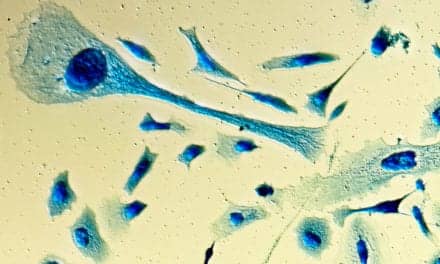FDA has granted an investigational device exemption (IDE) to Almac Diagnostic Services, Durham, NC, for an assay that will be used in the registrational phase 2 study of a new drug by Turning Point Therapeutics, San Diego, a precision oncology company developing novel drugs that address treatment resistance.
The next-generation sequencing (NGS) assay is intended for use in identifying patients with ALK, NTRK1-3, or ROS1 gene fusions in advanced solid tumors. Clinical investigators will use the test to determine molecular eligibility for enrollment into Turning Point’s registrational phase 2 portion of the global Trident 1 clinical study.
“We are pleased to achieve this important milestone with our partner Almac, moving us closer to the start of our pivotal study for repotrectinib in the second half of 2019,” says Athena Countouriotis, MD, president and chief executive officer of Turning Point Therapeutics. “With a clear unmet medical need for therapies that target genomic alterations in different cancers, the diagnostic assay will provide clinical investigators with timely information to confirm the presence of the oncogenic drivers we continue to study in patients with advanced solid tumors.”
Almac has been developing the NGS diagnostic based on the anchored multiplex polymerase chain reaction chemistry of Archer Dx, Boulder, Colo. The test is expected to identify tumors with the targeted gene fusions, enabling physicians to select appropriate patients for treatment with repotrectinib. Almac’s intent is to offer the test initially at the company’s CLIA-accredited laboratory in Durham, NC, and later to submit the test to FDA for regulatory approval in the United States.
“We are very pleased to have been granted IDE approval by FDA for the development and validation of this complex NGS diagnostic assay for its intended use as a clinical trial assay,” says Paul Harkin, president and managing director of Almac Diagnostic Services. “We are delighted to assist Turning Point Therapeutics with this important upcoming clinical study, furthering our partnership to progress such a promising investigational therapy as repotrectinib.”
Repotrectinib is an investigational, next-generation tyrosine kinase inhibitor (TKI) developed for the treatment of patients with advanced solid tumors harboring ALK, NTRK1-3, or ROS1 molecular rearrangements. Repotrectinib is a rationally designed, low-molecular-weight, macrocyclic TKI that is much smaller than current ALK, TRK family, and ROS1 inhibitors. The objective of the drug is to systematically overcome clinically acquired resistance mutations of ALK, TRK family, and ROS1 kinases, especially the gatekeeper and solvent front mutations.
Turning Point Therapeutics plans to begin the Trident 1 phase 2 open-label, multicohort study during the second half of 2019.
For further information, visit Turning Point Therapeutics.





